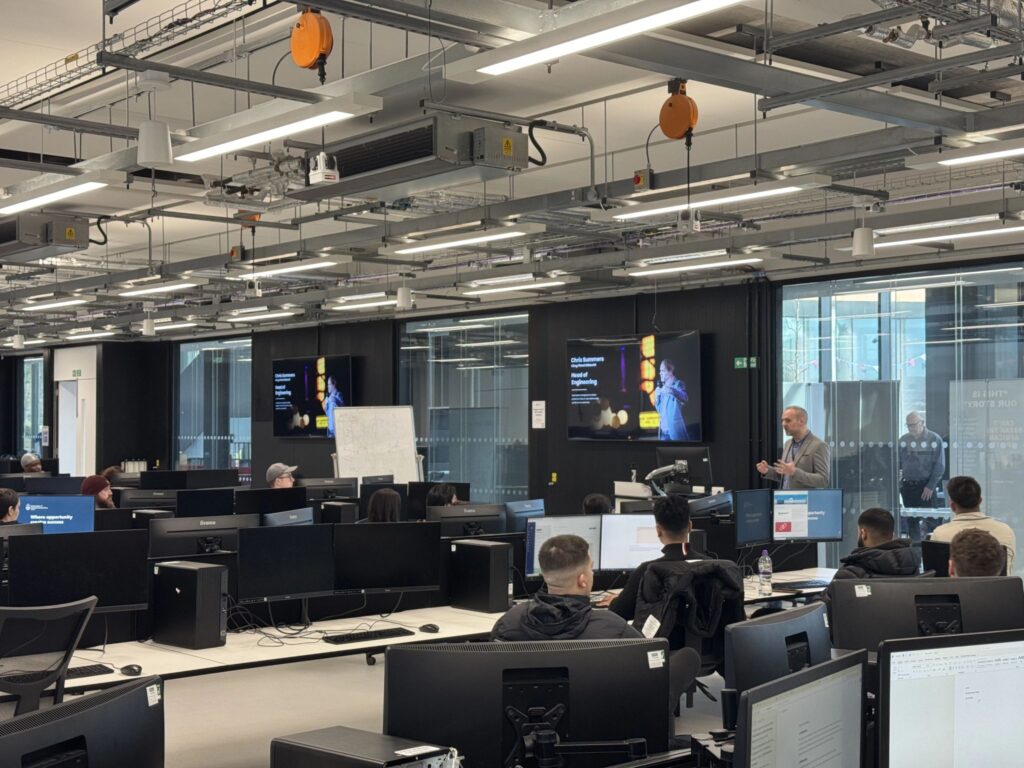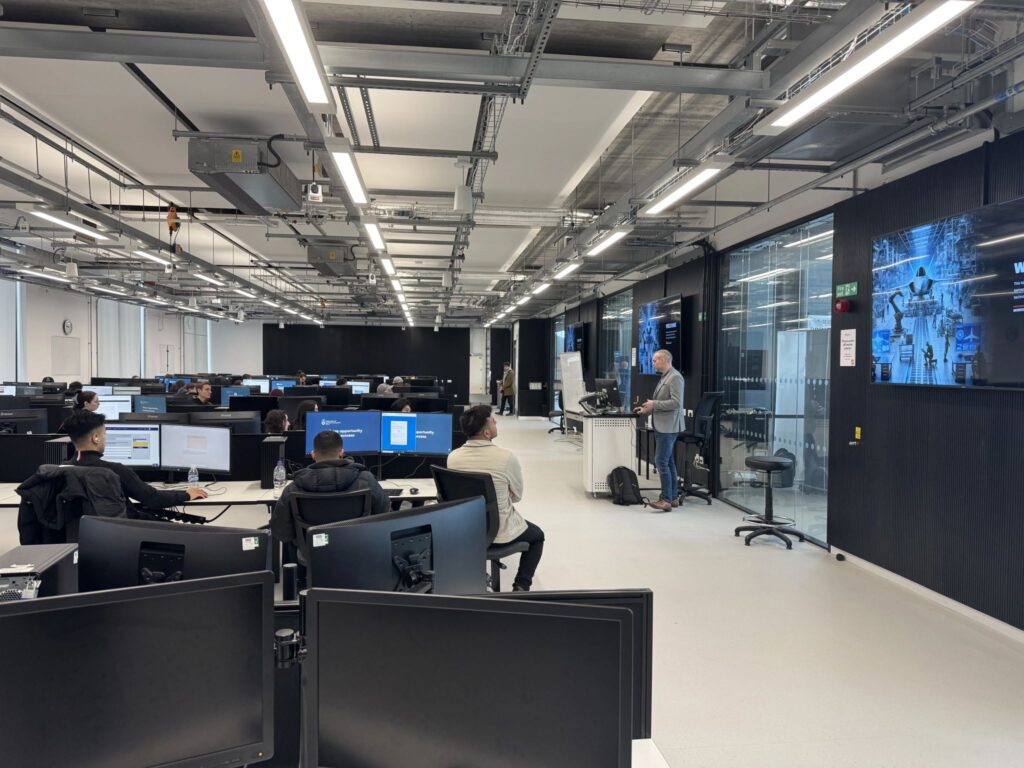Aimed at students and graduates who are looking to pursue a career in aerospace engineering, Chris shares an extract from his presentation, explaining what he believes are the Top 5 Skills for Success in 2025.


Chris shares:
Aerospace engineering is on the verge of a generational shift, with new technologies set to turn the status quo on its head.
As the industry evolves, students and early-career professionals must equip themselves with a new diverse set of skills to stay competitive. While technical expertise remains fundamental, the ability to adapt to and integrate emerging technologies will be crucial.
Here are my top five skills that aerospace engineering students should be looking to develop in 2025 to thrive in the industry:
1. Computational, Programming and Simulation Skills
Modern aerospace engineering is increasingly reliant on advanced computing techniques. From flight simulations to computational fluid dynamics (CFD) and Finite Element Analysis (FEM), as the technologies get more complex, we will be increasingly reliant on simulation. Engineers must be proficient in programming and data analysis to optimize all areas of aircraft performance and streamline design processes to keep development times and costs under control.
Proficiency and comfort in these tools allows engineers to analyse vast amounts of data, automate design iterations, and improve efficiency in both software and hardware development. With AI-driven solutions becoming integral to aerospace engineering, computational expertise will be a defining factor in future career success.
2. Advanced Materials and Manufacturing Knowledge
The aerospace sector has always driven towards more efficient, lightweight, and sustainable materials. Mastery of advanced manufacturing techniques is essential for engineers aiming to enhance aircraft durability, fuel efficiency, and overall performance.
Today we are at the dawn of the Additive Manufacturing era, this will lead to a complete reimagining of component design philosophy, similar to what was seen during the move from sheet metal to 5 axis machining. Students can arguably be better placed to drive this new era with more access to 3D printers in Universities.
Fundamentally, understanding material science and the manufacturing processes enables engineers to push the boundaries of design. This is why cross discipline experience is extremely important to Morson Projects in its Early Careers Development Program.
3. Systems Engineering and Integration
In 2025 Aircraft are closer to flying computers than their mechanical predecessors, with highly complex projects, involving multiple interdependent subsystems. Successful engineers must grasp how all of these systems interact and their structural elements work together to ensure safe and efficient aircraft operation.
With the rise of digital engineering, MBSE has become a critical tool in designing, testing, and certifying aerospace systems. By mastering systems integration, engineers can improve cross-functional collaboration and optimize design solutions across different disciplines.
In the past structure was prime, we are at a point where on some projects we start with the systems and build the structure to suit. The new generation will increasingly be systems first.
4. Artificial Intelligence and Automation
Like it or not there is no avoiding it, AI and automation are going to reshape aerospace technology. Be it autonomous flight systems to predictive maintenance and robotic manufacturing. Engineers who can leverage AI-driven solutions will play a significant role in the industry’s digital transformation.
Digital twins, in particular, show real promise, allowing for real-time simulation and optimization of components, reducing maintenance costs and improving reliability. As AI continues to advance, engineers skilled in machine learning and automation will lead the charge in next-generation aerospace solutions.
It is important for students to understand that AI may soon be doing the tasks that engineers previously did, for example producing 2D drawings. This does not mean less work, it means a change to tasks we will be doing.
5. Soft Skills – Communication, Teamwork, Emotional Intelligence (EQ)
Finally, and to me most importantly, technical skills alone are not enough to excel in aerospace engineering. Effective communication, teamwork, and adaptability are vital for success in an industry that relies on collaboration across multidisciplinary teams.
Covid 19 change the office landscape, maybe forever. A whole generation of young engineers will be entering a workforce where hybrid or home working may be common. Effective communication skills, personal and digital, are more important than ever for personal development and job satisfaction.
Conclusion
Aviation is at a tipping point, not for a generation have so many fundamental principles and technologies been on the table. All this uncertainty creates an amazing opportunity for Aerospace engineers who can merge technical excellence with adaptability and innovation.
By mastering computational skills, materials science, systems integration, AI applications, and soft skills, aerospace engineering students will position themselves for long-term success in a highly competitive field.
The future of aerospace belongs to those who embrace continuous learning, stay ahead of technological advancements, and cultivate a well-rounded skill set. Are you ready to take flight in your aerospace career?
Find out more about Morson Projects’ Early Careers Development Programme here >